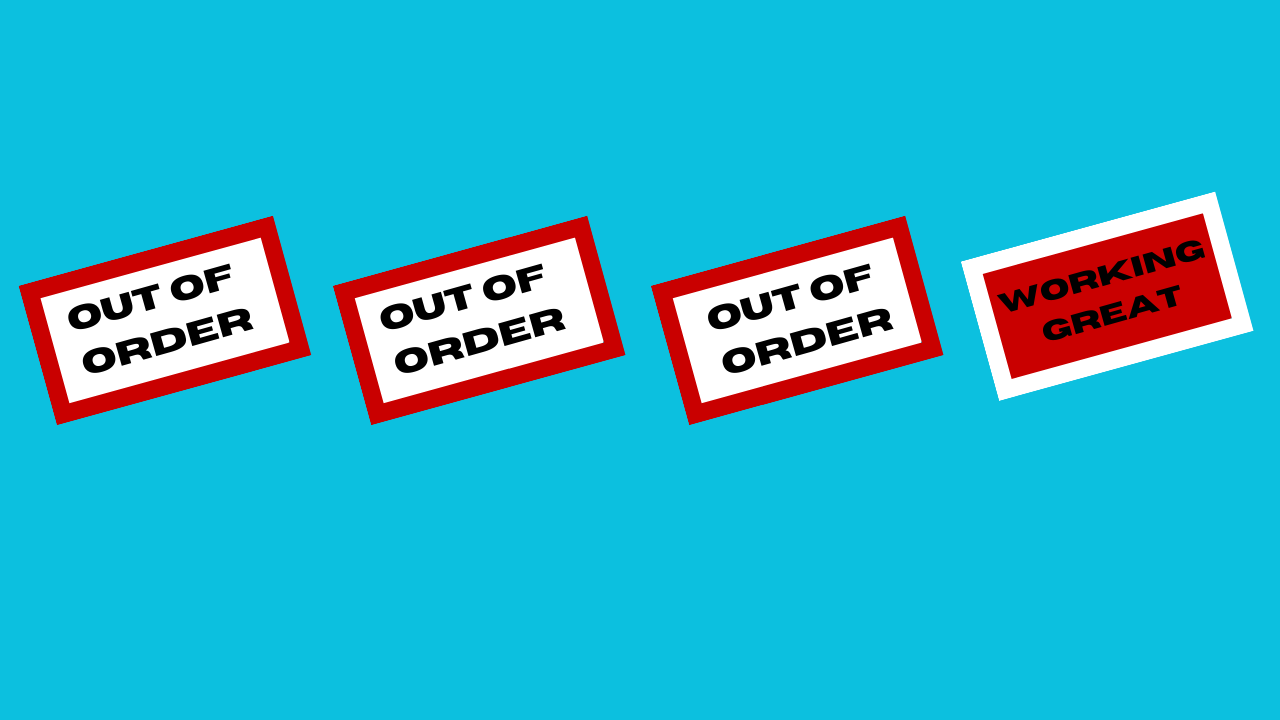A Very Handy Tool for Navigating 2024

On a flight home the other weekend, I was reading my library copy of Poverty, by America. And one line came right off the page:
"When we refuse to recognize what works, we risk swallowing the lie that nothing does."
The unceasingly intense drumbeat of headlines, feeds, chyrons, our own frustrations remind us in ALL CAPS about the many broken parts of our society (read: policy). And there are plenty, some which touch us very directly.
At the same time, there are many parts of our society that are quietly humming along. To recognize them isn't Pollyanna-ish naivety. Like good health, it's wise not to take them for granted.
Here's a little ode to some policy that's working in my neck of the woods:
My public library's interlibrary loan system costs the city about $4,300 each year and makes it possible for me to get Poverty, by America and an esoteric book on state legislatures (that would have set me back $78) without paying one buck. (Speaking of libraries, my town just opened up an electric tool lending library!)
Just the other night, I learned that my library exists because an 8th grade social studies class in 1964 lead by teacher Terrence Christy made an impassioned plea to the City Council for a public library.
That flight home I was on is part of the safest aviation system in the world, thanks to the U.S. Department of Transportation. Of course other parts of air travel are pretty close to zero. But safety, at least, is sound.
Because of the local water district, I can drink water out of the tap, shower with my mouth wide open, have ice cubes with my lemonade.
Friendly note: most water district/board/agency members are elected. They not only have a hand in maintaining water quality, but also in setting water rates. And, like many local elected positions, it's a platform for higher office. Good to pay attention to – or run for!
We get weather forecasts courtesy of the federal National Weather Service, which provides the raw data for most of our apps and local meteorologists - including Steve Martin in LA Story. NWS produces some 1.5 million forecasts and issues 50,000 warnings each year.
Most indoor facilities are smoke-free, courtesy of state and federal public health policy.
When I buy spinach, cottage cheese, bread, I don't worry that it'll be contaminated, thanks to food safety policy. (Plus, national organic standards make it clear what's pesticide-free.) And if food is contaminated, it's the exception, not the rule.
Transportation policy mandates that all cars have seatbelts; notably, nearly 50% of folks killed in cars died because they weren't buckled in.
Most mail continues to be delivered, trash picked up.
The federal National Cancer Institute has invested over $100 million annually in Non-Hodgkin Lymphoma research, which - combined with other investments - meant my mother's diagnosis wasn't an immediate death sentence.
There's room for improvement on all of these; democracy is nothing if not a work in progress. And as is too often the case, Black, brown, and low-income communities continue to be underserved and overburdened. Those who are the most impacted by policy usually have the least voice in shaping it.
But we overlook what does work at our own peril and wellbeing. As Matthew Desmond writes in Poverty, by America:
"We risk imagining the future only as more of the same. We risk giving in to despair, perhaps the most exculpating of all emotions, and submitting to cynicism, perhaps the most conservative of all belief systems. This can suffocate meaningful action, and it certainly doesn’t inspire others to join the cause."
It leads so easily to why bother thinking, doesn't it?
What doesn't work will almost always be louder than what does work. It takes a special kind of attention to appreciate what's not broken - who among us calls IT to thank them for Outlook firing on all cylinders?
Democracy is a participant sport that needs us on the field more than November to vote and April to pay taxes. Worry not. This doesn't require a lot of time, just a bit of care.
We can help make our city budget more aligned with our values.
We can become local election super champs!
We can choose one small (which doesn't mean insignificant) local policy change to take on this year.
We can get to know our state legislators - who vote on guns, reproductive rights, trans rights, and much more - to make sure they hear citizen, not just lobbyist voices. Only 20% of Americans know their state legislators; this could be the year we change that stat.
When despair and dismay pay a call - as they surely will - I take a page from my Mum's book: have your feeling and then get on with it.
What does work is the ground we build on to make more things work. What does work is a roadmap, a strategy for getting good policy across the finish line. What does work is proof that people have fought good fights before us and won.
The arc of history isn't out there bending by itself. It's an all-hands-on-deck project. And what better year than this to re-up our membership in this good work.
